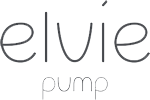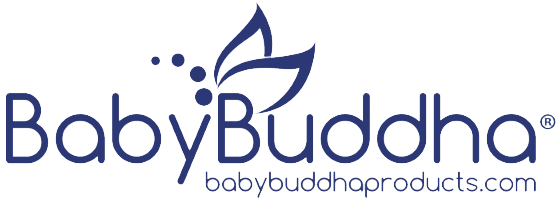Alcohol and Breastfeeding: Understanding the Risks

We see you, tired eyes, full heart, milk-stained shirt, and all. You’re doing so much. Loving, feeding, soothing, learning. And somewhere in between, maybe you’re wondering:
“Can I finally enjoy a glass of wine again?”
“Will it affect my baby?”
“Is it selfish to even ask?”
Let’s pause right there. No, it’s not selfish. It’s human. You’ve given your body, your time, and your heart. Wanting a moment for yourself, a quiet evening, a small celebration, or simply feeling like you again, isn’t asking too much.
This conversation isn’t about judgment. It’s about clarity. Because the last thing you need right now is more guilt. You deserve guidance that supports both your well-being and your baby’s.”
What This Guide Will Gently Support You With
- Learn how alcohol enters and leaves your breast milk.
- Understand the difference between occasional, timed drinking and higher-risk patterns.
- Get easy-to-follow tips like waiting 2–3 hours per drink before nursing and using feeding or pumping schedules to stay worry-free.
- Explore non-judgmental support for making choices that honour your well-being, your baby’s safety, and your comfort.
If you’re holding a newborn in one arm and self-doubt in the other, we want you to know: You’re not alone. You’re allowed to ask questions. And you’re doing an incredible job.
How Alcohol Transfers to Breast Milk?

What actually happens after that sip? Let’s break it down, clearly.
Have you ever paused before sipping a glass of wine, wondering, “Will this end up in my milk?” Knowing how it all works can help you feel more in control and less worried about your decisions
1. What really happens:
When you drink alcohol, it’s absorbed into your bloodstream through your stomach and small intestine. Since breast milk is made from the components of your blood, not your food, it can contain alcohol in small amounts as long as it’s in your bloodstream.
But it’s a temporary and mild transfer; alcohol in breast milk usually peaks for a short time, 30-60 minutes after drinking. After that, it gradually decreases as your body processes the alcohol.
2. Understanding What Counts as a ‘Standard Drink’
You might be wondering what actually qualifies as “one drink.” The term standard drink can sound vague, especially when glasses and bottles come in all shapes and sizes.
A standard drink is a measure of alcohol that helps you track how much you’re really consuming. It’s based on the amount of pure alcohol in each type of beverage, not the size of the glass or bottle.
Here’s what typically equals one standard drink (about 10g of alcohol):
- 100 mL of 13.5% wine (About half a small wine glass)
- 375 mL of mid-strength beer (One regular beer bottle or ‘stubby’)
- 275 mL of a pre-mixed alcoholic seltzer around 5% (One standard hard seltzer can)
- 30 mL of spirits such as vodka, whiskey, or gin (One shot glass)
While alcohol can enter your breast milk, it also leaves your milk over time, just like it leaves your bloodstream..
3. Do I need to “pump and dump”?
In most cases, no. Milk doesn’t “store” alcohol; it clears naturally as your body processes it. “Pumping and dumping” means expressing (pumping) your breast milk and then discarding it instead of feeding it to your baby. Some mothers do this after drinking alcohol, thinking it helps remove the alcohol from their milk.
But here’s the truth: pumping doesn’t speed up how fast alcohol leaves your milk; only time does. Your milk clears as your blood alcohol level drops. So, unless you’re pumping for comfort or to maintain supply, dumping isn’t usually necessary.
4. How Long Does It Take for Alcohol to Leave Breast Milk?
Most moms find comfort in knowing roughly how long alcohol stays in their system. While it varies a little for everyone, here’s a gentle guide to help you feel more in control:
- On average, it takes about 2 to 3 hours for one standard drink to clear from your breast milk.
- Every additional drink adds more time, so two drinks might take around 4 to 6 hours, and so on.
- Your weight, metabolism, and what you’ve eaten can affect how quickly your body processes alcohol.
- If you’re unsure, waiting longer or using previously expressed milk can be a better option.
How Alcohol Affects Breastfed Infants
You care deeply about your baby, and every choice you make reflects that. This isn’t about following rigid rules or striving for perfection. It’s about feeling informed, supported, and safe when considering that occasional glass of wine or toast with friends.
Let’s explore the facts with clarity and understanding:
1. Sleep Disruptions
Alcohol in breast milk can affect your baby’s sleep. While it may help babies fall asleep faster, studies show they tend to wake more often and sleep for shorter periods overall. That doesn’t mean one glass will ruin your baby’s night; it’s just something to consider when deciding on timing.
2. Feeding Behaviour
Some studies suggest that babies may feed slightly less, around 20% less milk, during the three to four hours after a mother consumes alcohol. This change is usually temporary and doesn’t point to long-term issues.
3. Developmental Considerations
Consistent, heavy alcohol exposure, especially during pregnancy, has been linked to serious developmental risks, including Fetal Alcohol Syndrome (FAS). FAS can lead to long-term physical, behavioural, and learning challenges in children. But it’s important to be clear: we’re talking about regular, high levels of exposure, not the occasional single drink while breastfeeding.
4. Digestive Sensitivity
Some infants may show signs of fussiness or gasiness if exposed to alcohol through milk. While not every baby reacts this way, tuning into your little one’s cues can help you decide what works best.
If you choose to drink alcohol while breastfeeding, do so in very small amounts and only after carefully considering the potential effects on your baby. When unsure, it’s always best to consult your healthcare provider.
How Your Body Processes Alcohol While Breastfeeding?

Not every glass of wine or sip of beer has the same effect, and that’s where understanding a few key factors can really help.
1. Temporary Decrease in Milk Production
Despite old myths, alcohol doesn’t help with milk supply, it can actually reduce it. Alcohol may lower the release of prolactin and oxytocin, the hormones responsible for milk production and let-down. This can lead to shorter or less productive feeds.
2. Slower Let-Down Reflex
Alcohol may delay or weaken your let-down reflex, making it harder for your milk to flow easily. You might notice your baby getting frustrated at the breast or feeds taking longer than usual.
3. Changes in Milk Taste
Alcohol can slightly alter the taste of breast milk. Some babies may not mind, but others might fuss or feed less during this time, leading to missed cues or disrupted feeding rhythms.
4. Emotional and Physical Fatigue
Alcohol, even in small amounts, can affect your mood, energy, and sleep quality, all of which are already under strain during early motherhood. Feeling sluggish or more anxious after drinking can make breastfeeding feel harder than it needs to be.
Making Safe, Informed Choices Around Drinking and Nursing
If you’re breastfeeding and wondering how to approach alcohol safely, you deserve guidance that respects both your baby’s needs and your own.
Here’s what you can keep in mind when making choices that feel right for you:
- Wait Until Baby’s Feeding Is More Predictable: If your baby is still in the early newborn stage (especially in the first month), it’s safest to avoid alcohol altogether. Newborns feed unpredictably, and it’s hard to know when they’ll want to nurse next.
- Follow Trusted Health Guidance: Leading organizations like the CDC and AAP say that occasional, moderate alcohol intake (like one standard drink) can be safe while breastfeeding, especially when you give your body time to process it before your next feed.
- Plan Ahead When You Can: Breastfeed or pump before having a drink so there’s a longer window before the next feed. This gives your body more time to process the alcohol, helping you avoid any transfer into your milk.
- Stick With Low-Alcohol Choices: Choosing drinks with lower alcohol content and sipping slowly gives your body more time to process the alcohol and lowers the chance it enters your milk in high amounts.
- Eat Before and During Drinking: Having a meal slows how quickly alcohol is absorbed into your bloodstream, and then into your milk. It’s a simple step that helps protect your baby while giving you peace of mind.
Curious About Testing Breast Milk for Alcohol? Here’s What You Should Know

If you’ve ever thought, “Has enough time passed?”. It’s something a lot of mothers wonder about, and having that extra bit of reassurance truly matters. Alcohol test strips can be a simple way to check and feel a bit more at ease.
Here’s what you should know:
- How They Work: Alcohol test strips check for the presence of alcohol in breast milk. They don’t give you a specific amount, but they can tell you if alcohol is still present or not.
- Benefits and Limits: While they’re convenient and easy to use, alcohol test strips aren’t always 100% accurate. They work best when paired with general timing guidance, such as waiting 2 to 3 hours per standard drink before breastfeeding.
- Using Them Without Guilt: Choosing to test your milk doesn’t mean you’re overthinking. It means you’re paying attention and caring deeply. Whether you use them often or occasionally, it’s a reflection of your love and thoughtfulness.
- Other Helpful Tools: You can also use apps that track feeding and drinking times, follow milk storage guidelines, or speak with a lactation expert if you ever feel unsure. Support comes in many forms.
Finding Support and Guidance That Truly Helps
You don’t have to figure this all out alone. Whether you’re considering the occasional drink, feeling unsure, or just doing your best for your baby, please know that support is out there, without pressure or judgment.
- Personalized Care from Trusted Experts: Lactation consultants, pediatricians, and OB-GYNs can offer clear, compassionate advice tailored to your situation. If you’re ever unsure, reaching out doesn’t mean you’re overthinking; it means you care.
- Connection Through Community: Talking with other moms, online or in person, can be a powerful reminder that you’re not the only one with questions. Shared stories ease the pressure and remind you that you’re part of something bigger.
- Resources That Offer Peace of Mind: From CDC breastfeeding guidelines and the LactMed database to helpful apps and supportive equipment like breast pumps (many available through insurance via Insurance Covered Breast Pumps), having the right tools can make this journey feel more manageable.
Final Thoughts
You’re already making thoughtful decisions, and that matters more than perfection. Whether it’s choosing when to nurse after a drink or deciding to wait entirely, what counts is that you’re doing it with care.
If you ever need clarity or reassurance, you can always reach out to lactation consultants and healthcare providers to help and guide you when you need it the most.
You’re doing your best!
FAQs
- Can I drink alcohol while breastfeeding?
Yes, occasional drinking is generally considered safe if timed carefully. Waiting at least 2–3 hours after one standard drink before nursing can help reduce alcohol in breast milk. - How much alcohol passes into breast milk?
Only a small amount, similar to your blood alcohol level, but even low levels can affect your baby’s sleep and behavior, especially if they’re very young. - Do I need to “pump and dump” after drinking?
Usually not. Pumping doesn’t speed up how your body clears alcohol. The safest approach is to wait until alcohol has left your system before breastfeeding again. - What if I had a drink and breastfed right after?
Don’t panic. One-time exposures are unlikely to harm your baby. Focus on staying hydrated and spacing out feedings next time if you choose to drink again. - Can I use a breast pump to plan ahead before drinking?
Yes! Pumping and storing milk ahead of time can give you flexibility and peace of mind. You can check eligibility for an insurance-covered pump at Insurance Covered Breast Pumps. - Are there tools to help me decide when it’s safe to nurse?
Yes, apps and milk alcohol test strips can offer added reassurance, but timing and moderation remain key. Always trust your instincts and consult your doctor when unsure.










